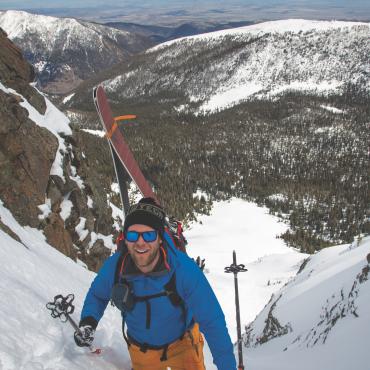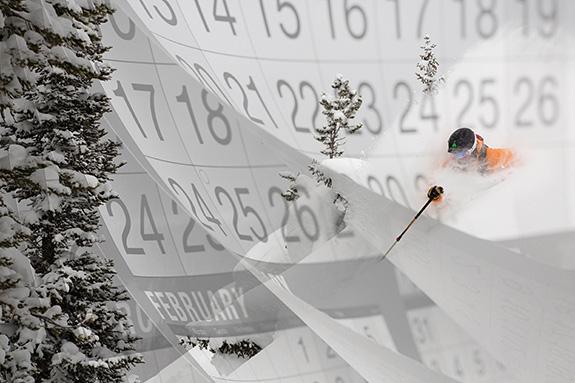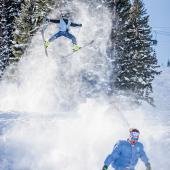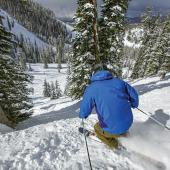The Waiting Game
Anticipation is happiness.
In the best of times, snow is a slow and quiet tease. Each lily-white flake that spins down brings with it an avalanche of possibility. Every inch that accumulates amplifies the drumming beat of our collective mountain rites. Snow compels us; it provokes our sense of wonder; it binds us together in a sort of imaginative worship. When it falls long and often and deep, snow engenders a magical sort of expectation in skiers, from which grows a singular, contented kind of happiness. But when it doesn’t fall long, or often, or deep, snow becomes an absent tormentor, holding hostage that same happiness.
How many dry spells have we endured, waiting for storms that never came? How many gray, snowless afternoons have we cursed the empty, scurrying clouds? How many clear, starry nights have we complained and commiserated, sharing too many glasses of dark beer to match our dark mood?
We want more, and we want it now. And why not? We’ve been conditioned to expect that everything should be available, always. We communicate instantly, all the time. Anything we want to buy is one click away and delivered to our home overnight. If we want a new romance, it’s as easy as swiping right. And with Google at our fingertips, the idea of mystery is almost quaint. Waiting is to be avoided. Waiting feels bad. Waiting is for suckers. But snow isn’t available on-demand. It defies our expectation. Snow makes us wait. And in the end, the waiting might be at least as good for us as the turns.
See, far smarter people than I have surmised that waiting with the expectation of happiness is happiness itself. A simpler way to describe it is anticipation. As a skier, have you ever been more excited, more optimistic or joyful than on the eve of a massive storm? Whatever the outcome of that storm, the joy you feel is real. That’s happiness itself.
Our shared anticipation—of powder days and face-shots and that indescribable feeling of untethered, ground-level flight—make those experiences more powerful. The happiness we derive from being in the mountains is correlated with the anticipation we feel when we’re away. It’s why we watch ski movies and read magazines and drool over photos of snow and mountains and skiers. It’s why we rev each other up in the pre-season, harnessing the optimism and possibility of a new winter to make grand plans. And it’s why being “stoked” has become a respected human quality in communities like ours.
But if anticipation is waiting with the expectation of happiness, then anxiety is waiting with the expectation of disappointment. Anxiety is linked to fear—fear, for instance, that the season is finished; that you moved to Big Sky to be a ski bum and it’s not what you thought it would be; that this thing you love and in which you are invested has let you down. The problem is that anticipation can turn to anxiety almost imperceptibly.
In a perfect skiers’ world, snow would fall often and deep, all winter, every winter. We live in the next best place: Montana. We’re lucky here to enjoy regularly-scheduled winters. Some are better than others, but they always seem to show up. For skiers, Montana provides.
Here, we can choose happiness. We can look at the inevitable dry spells and droughts as times for anticipation. We can wait with optimism for the powdery reward that will have been made sweeter by our patience—and it will be sweeter. After a couple weeks of skiing crud and bumps and railed-out groomers, a six-inch storm might be remembered as one of the best days of the season.
Believe the snow will return, anticipate it, and if you can, enjoy the awful, wonderful, powerful wait for what it is: happiness itself.











